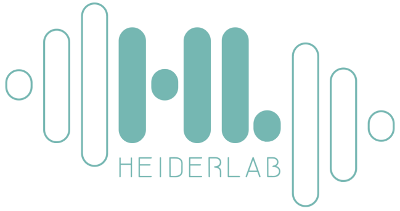CORona Drug InTEractions database
Repurposing potential of FDA‐approved and investigational drugs for COVID‐19 targeting SARS‐CoV‐2 spike and main protease and validation by machine learning algorithm
Akalesh Kumar Verma, Rohit Aggarwal
Abstract
The present study aimed to assess the repurposing potential of existing antiviral drug candidates (FDA‐approved and investigational) against SARS‐CoV‐2 target proteins that facilitates viral entry and replication into the host body. To evaluate molecular affinities between antiviral drug candidates and SARS‐CoV‐2 associated target proteins such as spike protein (S) and main protease (Mpro), a molecular interaction simulation was performed by docking software (MVD) and subsequently the applicability score was calculated by machine learning algorithm. Furthermore, the STITCH algorithm was used to predict the pharmacology network involving multiple pathways of active drug candidate(s). Pharmacophore features of active drug(s) molecule was also determined to predict structure–activity relationship (SAR). The molecular interaction analysis showed that cordycepin has strong binding affinities with S protein (−180) and Mpro proteins (−205) which were relatively highest among other drug candidates used. Interestingly, compounds with low IC50 showed high binding energy. Furthermore, machine learning algorithm also revealed high applicability scores (0.42–0.47) of cordycepin. It is worth mentioning that the pharmacology network depicted the involvement of cordycepin in different pathways associated with bacterial and viral diseases including tuberculosis, hepatitis B, influenza A, viral myocarditis, and herpes simplex infection. The embedded pharmacophore features with cordycepin also suggested strong SAR. Cordycepin's anti‐SARS‐CoV‐2 activity indicated 65% (E‐gene) and 42% (N‐gene) viral replication inhibition after 48h of treatment. Since, cordycepin has both preclinical and clinical evidences on antiviral activity, in addition the present findings further validate and suggest repurposing potential of cordycepin against COVID‐19.
Source: PubMed
Related molecules
Related interactions
| Target | Target affiliation | Drug | Type | Result |
|---|---|---|---|---|
| Target | Target affiliation | Drug | Type | Result |
| Name | Synonyms | Genes | Origin |
|---|---|---|---|
| Name | Synonyms | Genes | Origin |
| Name | Synonyms | PubChem | DrugBank | RCSB PDB | ATC |
|---|---|---|---|---|---|
| Name | Synonyms | PubChem | DrugBank | RCSB PDB | ATC |
| Title | Authors | DOI | Source | Article type | Date |
|---|---|---|---|---|---|
| Title | Authors | DOI | Source | Article type | Date |
| Title | Status | Phases | Start Date | Prim. Comp. Date | Comp. Date | First Post. Date |
|---|---|---|---|---|---|---|
| Title | Status | Phases | Start Date | Prim. Comp. Date | Comp. Date | First Post. Date |
CORDITE (CORona Drug InTEractions database) collects and aggregates data from PubMed, MedRxiv, BioRxiv, ChemRxiv and PMC for SARS-CoV-2. Its main focus is set on drug interactions either addressing viral proteins or human proteins that could be used to treat COVID. It collects and provides up-to-date information on computational predictions, in vitro, as well as in vivo study data.
The information provided is for research only and we cannot guarantee the correctness of the data.
Please contact dominik.heider@uni-muenster.de for further information.
Programmable access
There is an open API for access programmatically to the database. The API will print a JSON output:
- Interactions
https://cordite-api.uni-muenster.de/api.php?action=list&table=interaction
- Targets
https://cordite-api.uni-muenster.de/api.php?action=list&table=target
- Drugs
https://cordite-api.uni-muenster.de/api.php?action=list&table=drug
- Publications
https://cordite-api.uni-muenster.de/api.php?action=list&table=publication
- Clinical trials
https://cordite-api.uni-muenster.de/api.php?action=list&table=clinical_trial

